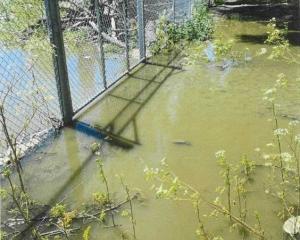
It can often be a fine line for women to tread when becoming a professional athlete.
Many are discouraged from having children during their careers, mainly for the time they have to step away from their sport, the changes in their bodies and the lack of stable income.

Fifa, at its recent congress, agreed to a raft of changes providing women more support during and after pregnancy and during their menstrual cycles.
Leading football players and coaches are eligible for a minimum of 14 weeks’ paid maternity leave or eight weeks’ paid absence when adopting a child, and non-biological mothers are allowed a minimum of eight weeks’ family leave.
Clubs can temporarily replace players for any of those reasons, and returning players can be registered outside the usual period.
Member associations are also being encouraged to allow players to have contact with their families while on international duty, including considering allowing mothers to have children with them while in camp for big tournaments such as the World Cup.
Fifa chief women’s football officer Sarai Baremann acknowledged the separation between a mother and child could have a big toll on both and it was important the organisation and its members threw their support behind the players.
Former United States coach Jill Ellis applauded the new regulations and said a career should be inclusive for women to be mothers or raise a child.
"If I didn’t have support around me, I wouldn’t have had the ability to do that and maintain my career.
"These are big steps and big strides to really normalise the life that we go through as women. That’s what we want to provide now at every level, the club level, the national team level, the opportunity for pro players to have the chance to be mums."
Motherhood is not the only area finally getting some assistance.
Menstrual cycles are being considered, and players are now entitled to receive full pay due to severe menstruation.
Some of these moves might seem small to some, but in reality they are a massive step forward for women feeling valued, having financial stability and knowing they do not have to choose between their career and family.
We need to stop discouraging athletes from returning to their careers after having children, and we have some excellent New Zealand role models — Ameliaranne Ekenasio, Valerie Adams and others — who are proof you can do both.
Many organisations have frameworks around women and girls these days — Snow Sports New Zealand recently launched its Maunga Wahine project survey, for example — and it will be good to see what is implemented in the coming years with more understanding around women’s needs.
New ground
It is pleasing to see the interest in hockey building and resulting in Otago producing its first under-20 women’s side this season. On top of that, the organisation has lured Irish international goalkeeper Holly Micklem to Dunedin. She will arrive later this month and do some coaching throughout the South.
Local legends
Congratulations to Alhambra-Union prop Eilis Doyle, who brought up 100 games for the Crazy Horses at the weekend. Zoe Frood (nee Whatarau) played her 75th as well. University lock Julia Gorinski also recently brought up her 100th cap for University. Looking forward to seeing them all hopefully in action for the Otago Spirit later this year.
King’s honours
Wonderful again to see so many women in sport included in the King’s Birthday Honours. Among them were Commonwealth Games Federation boss and former synchronised swimmer Katie Sadleir, Women in Sport Aotearoa founder Julie Paterson, former Otago netballer Adine Wilson and Patricia Lindsay, who was a founding director of the Southern Teamco board that helped get the Southern Sting running.












